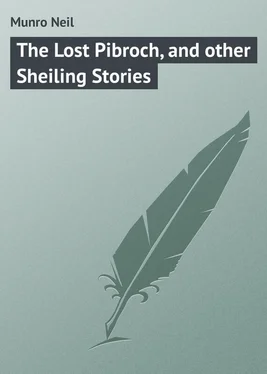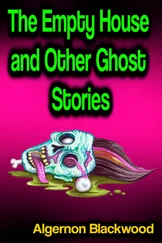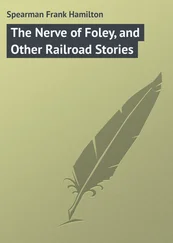Neil Munro - The Lost Pibroch, and other Sheiling Stories
Здесь есть возможность читать онлайн «Neil Munro - The Lost Pibroch, and other Sheiling Stories» — ознакомительный отрывок электронной книги совершенно бесплатно, а после прочтения отрывка купить полную версию. В некоторых случаях можно слушать аудио, скачать через торрент в формате fb2 и присутствует краткое содержание. Жанр: foreign_prose, на английском языке. Описание произведения, (предисловие) а так же отзывы посетителей доступны на портале библиотеки ЛибКат.
- Название:The Lost Pibroch, and other Sheiling Stories
- Автор:
- Жанр:
- Год:неизвестен
- ISBN:нет данных
- Рейтинг книги:4 / 5. Голосов: 1
-
Избранное:Добавить в избранное
- Отзывы:
-
Ваша оценка:
- 80
- 1
- 2
- 3
- 4
- 5
The Lost Pibroch, and other Sheiling Stories: краткое содержание, описание и аннотация
Предлагаем к чтению аннотацию, описание, краткое содержание или предисловие (зависит от того, что написал сам автор книги «The Lost Pibroch, and other Sheiling Stories»). Если вы не нашли необходимую информацию о книге — напишите в комментариях, мы постараемся отыскать её.
The Lost Pibroch, and other Sheiling Stories — читать онлайн ознакомительный отрывок
Ниже представлен текст книги, разбитый по страницам. Система сохранения места последней прочитанной страницы, позволяет с удобством читать онлайн бесплатно книгу «The Lost Pibroch, and other Sheiling Stories», без необходимости каждый раз заново искать на чём Вы остановились. Поставьте закладку, и сможете в любой момент перейти на страницу, на которой закончили чтение.
Интервал:
Закладка:
Munro Neil
The Lost Pibroch, and other Sheiling Stories
THE LOST PIBROCH
TO the make of a piper go seven years of his own learning and seven generations before. If it is in, it will out, as the Gaelic old-word says; if not, let him take to the net or sword. At the end of his seven years one born to it will stand at the start of knowledge, and leaning a fond ear to the drone, he may have parley with old folks of old affairs. Playing the tune of the “Fairy Harp,” he can hear his forefolks, plaided in skins, towsy-headed and terrible, grunting at the oars and snoring in the caves; he has his whittle and club in the “Desperate Battle” (my own tune, my darling!), where the white-haired sea-rovers are on the shore, and a stain’s on the edge of the tide; or, trying his art on Laments, he can stand by the cairn of kings, ken the colour of Fingal’s hair, and see the moon-glint on the hook of the Druids!
To-day there are but three pipers in the wide world, from the Sound of Sleat to the Wall of France. Who they are, and what their tartan, it is not for one to tell who has no heed for a thousand dirks in his doublet, but they may be known by the lucky ones who hear them. Namely players tickle the chanter and take out but the sound; the three give a tune the charm that I mention – a long thought and a bard’s thought, and they bring the notes from the deeps of time, and the tale from the heart of the man who made it.
But not of the three best in Albainn today is my story, for they have not the Lost Pibroch. It is of the three best, who were not bad, in a place I ken – Half Town that stands in the wood.
You may rove for a thousand years on league-long brogues, or hurry on fairy wings from isle to isle and deep to deep, and find no equal to that same Half Town. It is not the splendour of it, nor the riches of its folk; it is not any great routh of field or sheep-fank, but the scented winds of it, and the comfort of the pine-trees round and about it on every hand. My mother used to be saying (when I had the notion of fairy tales), that once on a time, when the woods were young and thin, there was a road through them, and the pick of children of a country-side wandered among them into this place to play at sheilings. Up grew the trees, fast and tall, and shut the little folks in so that the way out they could not get if they had the mind for it. But never an out they wished for. They grew with the firs and alders, a quiet clan in the heart of the big wood, clear of the world out-by.
But now and then wanderers would come to Half Town, through the gloomy coves, under the tall trees. There were packmen with tales of the out-world. There were broken men flying from rope or hatchet. And once on a day of days came two pipers – Gilian, of Clan Lachlan of Strathlachlan, and Rory Ban, of the Macnaghtons of Dundarave.
They had seen Half Town from the sea – smoking to the clear air on the hillside; and through the weary woods they came, and the dead quiet of them, and they stood on the edge of the fir-belt.
Before them was what might be a township in a dream, and to be seen at the one look, for it stood on the rising hill that goes back on Lochow.
The dogs barked, and out from the houses and in from the fields came the quiet clan to see who could be here. Biggest of all the men, one they named Coll, cried on the strangers to come forward; so out they went from the wood-edge, neither coy nor crouse, but the equal of friend or foe, and they passed the word of day.
“Hunting,” they said, “in Easachosain, we found the roe come this way.”
“If this way she came, she’s at Duglas Water by now, so you may bide and eat. Few, indeed, come calling on us in Half Town; but whoever they are, here’s the open door, and the horn spoon, and the stool by the fire.”
He took them in and he fed them, nor asked their names nor calling, but when they had eaten well he said to Rory, “You have skill of the pipes; I know by the drum of your fingers on the horn spoon.”
“I have tried them,” said Rory, with a laugh, “a bit – a bit. My friend here is a player.”
“You have the art?” asked Coll.
“Well, not what yoo might call the whole art,” said Gilian, “but I can play – oh yes!I can play two or three ports.”
“You can that!” said Rory.
“No better than yourself, Rory.”
“Well, maybe not, but – anyway, not all tunes; I allow you do ‘Mackay’s Banner’ in a pretty style.”
“Pipers,” said Coll, with a quick eye to a coming quarrel, “I will take you to one of your own trade in this place – Paruig Dali, who is namely for music.”
“It’s a name that’s new to me,” said Rory, short and sharp, but up they rose and followed Big Coll.
He took them to a bothy behind the Half Town, a place with turf walls and never a window, where a blind man sat winding pirns for the weaver-folks.
“This,” said Coll, showing the strangers in at the door, “is a piper of parts, or I’m no judge, and he has as rare a stand of great pipes as ever my eyes sat on.”
“I have that same,” said the blind man, with his face to the door. “Your friends, Coll?”
“Two pipers of the neighbourhood,” Rory made answer. “It was for no piping we came here, but by the accident of the chase. Still and on, if pipes are here, piping there might be.”
“So be it,” cried Coll; “but I must go back to my cattle till night comes. Get you to the playing with Paruig Dali, and I’ll find you here when I come back.” And with that he turned about and went off.
Parig put down the ale and cake before the two men, and “Welcome you are,” said he.
They ate the stranger’s bite, and lipped the stranger’s cup, and then, “Whistle ‘The Macraes’ March,’ my fair fellow,” said the blind man.
“How ken you I’m fair?” asked Rory.
“Your tongue tells that. A fair man has aye a soft bit in his speech, like the lapping of milk in a cogie; and a black one, like your friend there, has the sharp ring of a thin burn in frost running into an iron pot. ‘The Macraes’ March,’ laochain .”
Rory put a pucker on his mouth and played a little of the fine tune.
“So!” said the blind man, with his head to a side, “you had your lesson. And you, my Strathlachlan boy without beard, do you ken ‘Muinntir a’ Ghlinne so’?”
“How ken ye I’m Strathlachlan and beardless?” asked Gilian.
“Strathlachlan by the smell of herring-scale from your side of the house (for they told me yesterday the gannets were flying down Strathlachlan way, and that means fishing), and you have no beard I know, but in what way I know I do not know.” Gilian had the siubhal of the pibroch but begun when the blind man stopped him.
“You have it,” he said, “you have it in a way, the Macarthur’s way, and that’s not my way. But, no matter, let us to our piping.”
The three men sat them down on three stools on the clay floor, and the blind man’s pipes passed round between them.
“First,” said Paruig (being the man of the house, and to get the vein of his own pipes) – “first I’ll put on them ‘The Vaunting.’” He stood to his shanks, a lean old man and straight, and the big drone came nigh on the black rafters. He filled the bag at a breath and swung a lover’s arm round about it. To those who know not the pipes, the feel of the bag in the oxter is a gaiety lost. The sweet round curve is like a girl’s waist; it is friendly and warm in the crook of the elbow and against a man’s side, and to press it is to bring laughing or tears.
The bothy roared with the tuning, and then the air came melting and sweet from the chanter. Eight steps up, four, to the turn, and eight down went Paruig, and the piobaireachd rolled to his fingers like a man’s rhyming. The two men sat on, the stools, with their elbows on their knees, and listened.
Читать дальшеИнтервал:
Закладка:
Похожие книги на «The Lost Pibroch, and other Sheiling Stories»
Представляем Вашему вниманию похожие книги на «The Lost Pibroch, and other Sheiling Stories» списком для выбора. Мы отобрали схожую по названию и смыслу литературу в надежде предоставить читателям больше вариантов отыскать новые, интересные, ещё непрочитанные произведения.
Обсуждение, отзывы о книге «The Lost Pibroch, and other Sheiling Stories» и просто собственные мнения читателей. Оставьте ваши комментарии, напишите, что Вы думаете о произведении, его смысле или главных героях. Укажите что конкретно понравилось, а что нет, и почему Вы так считаете.












